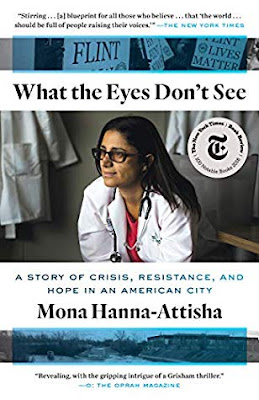One angry woman did everything, and she failed.~from How Beautiful We Were by Imbolo Mbue
Was money so important that they would sell children to strangers seeking oil?~from How Beautiful We Were by Imbolo Mbue
How could we have been so reckless as to dream?~from How Beautiful We Were by Imbolo Mbue
The fictional village, its inhabitants and history, is so well drawn I could believe it taken from life. The viewpoint shifts among the characters.
We wondered if America was populated with cheerful people like that overseer, which made it hard for us to understand them: How could they be happy when we were dying for their sake?~from How Beautiful We Were by Imbolo Mbue
The fate of the village and its country are an indictment to Western colonialism and capitalism. Slaves, rubber, oil--people came and exploited Africa for gain. The village loses their traditions and ancestral place as their children become educated and take jobs with Western corporations and the government.
This story must be told, it might not feel good to all ears, it gives our mouths no joy to sat it, but our story cannot be left untold.~from How Beautiful We Were by Imbolo Mbue
This is not an easy book for an American to read. It reminds us of the many ways our country has failed and continues to fail short of the ideal we hope it is. And not just abroad--we have failed our to protect our children here in America.
I was given access to a free ebook by the publisher through NetGalley. My review is fair and unbiased.
How Beautiful We Were
by Imbolo Mbue
Random House Publishing Group - Random House
Pub Date: March 9, 2021
ISBN: 9780593132425
hard cover $28.00 (USD)
from the publisher:
We should have known the end was near. So begins Imbolo Mbue’s powerful second novel, How Beautiful We Were. Set in the fictional African village of Kosawa, it tells of a people living in fear amid environmental degradation wrought by an American oil company. Pipeline spills have rendered farmlands infertile. Children are dying from drinking toxic water. Promises of cleanup and financial reparations to the villagers are made—and ignored. The country’s government, led by a brazen dictator, exists to serve its own interests. Left with few choices, the people of Kosawa decide to fight back. Their struggle will last for decades and come at a steep price.
Told from the perspective of a generation of children and the family of a girl named Thula who grows up to become a revolutionary, How Beautiful We Were is a masterful exploration of what happens when the reckless drive for profit, coupled with the ghost of colonialism, comes up against one community’s determination to hold on to its ancestral land and a young woman’s willingness to sacrifice everything for the sake of her people’s freedom.


